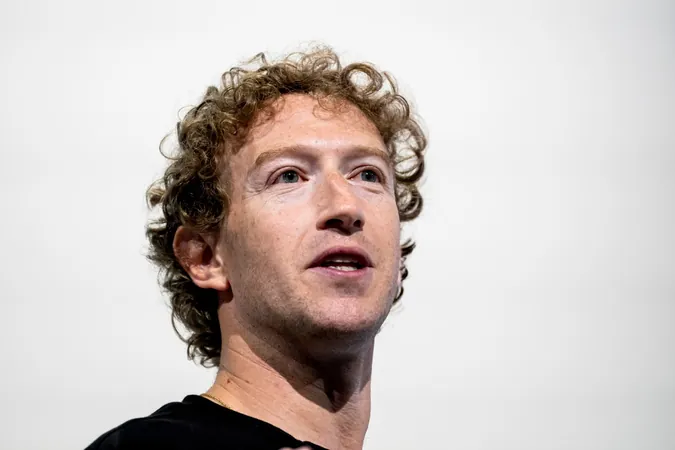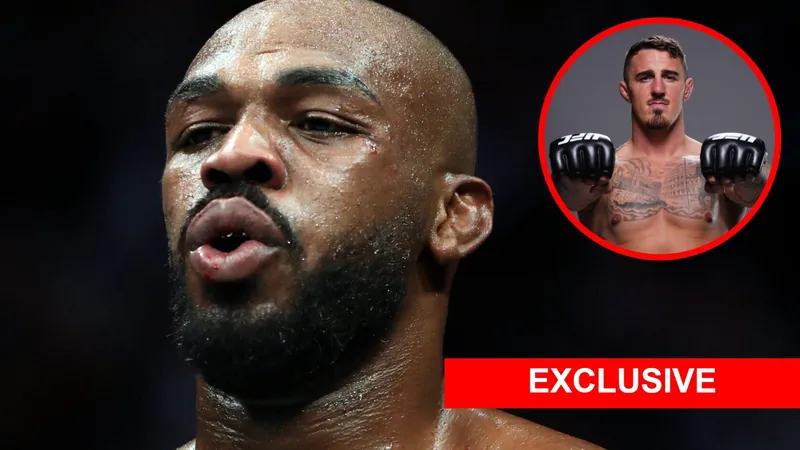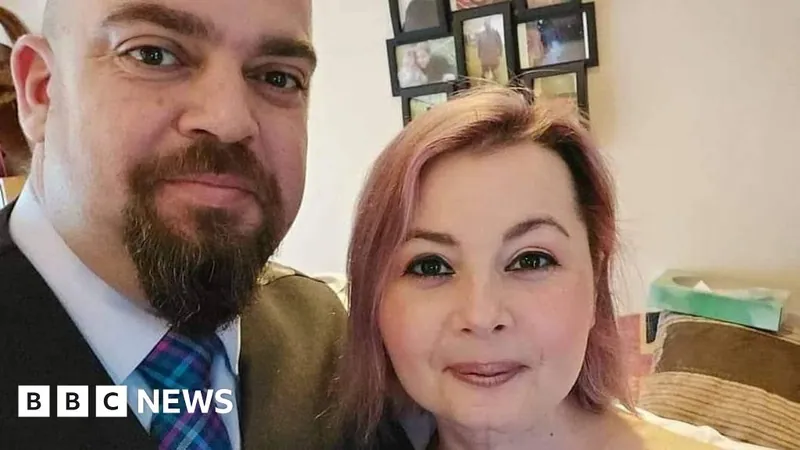
Mark Zuckerberg’s Bold Move: The Shocking Shift in Meta’s Content Moderation Policy Revealed on Joe Rogan's Podcast!
2025-01-10
Author: Ming
Mark Zuckerberg's Bold Move
In a candid interview that lasted nearly three hours on Joe Rogan's podcast, Meta CEO Mark Zuckerberg made waves by defending his controversial decision to significantly roll back the company's content moderation policies. This pivot, which has drawn criticism from both the public and his own employees, marks a dramatic departure from the tech giant’s previous approach to handling misinformation on its platforms.
Changes in Content Moderation
Zuckerberg’s remarks followed a monumental announcement earlier this week: Meta would be discontinuing its independent fact-checking program and instead introduce a community notes system similar to that of X (formerly Twitter). This means that users on Facebook, Instagram, and Threads will now play a more prominent role in flagging misinformation. Zuckerberg also revealed that the thresholds for automated content filters will be raised, resulting in fewer erroneous takedowns of posts. However, this change also raises concerns over the prevalence of harmful content being allowed to remain on the platforms.
Embracing Free Expression
During the podcast, Zuckerberg emphasized the essence of social media as a tool for free expression, stating, "You only start one of these companies if you believe in giving people a voice." He reiterated Meta's founding mission to make the world "more open and connected," a sentiment that is now at the forefront of his new strategy.
Timing and Political Implications
The timing of these changes is hard to overlook, occurring just days before Donald Trump's presidential inauguration. Many have speculated that this move could be a strategic play, given that Trump has previously claimed Zuckerberg engaged in a form of electoral sabotage during the 2020 election. In a surprising endorsement of the incoming president, Zuckerberg expressed optimism, articulating the necessity for a government that fiercely supports American tech companies on a global scale, especially in light of Meta’s ongoing challenges in the European market.
Clarifying Intentions
Yet, Zuckerberg denied any correlation between timing and political motives, clarifying that the adjustments had been in the pipeline for some time. He expressed concern over the burden placed on social media platforms to determine the truth for billions of users, a responsibility he now considers untenable.
Reflecting on Past Decisions
Reflecting on the past decade, Zuckerberg described the shift towards ideological censorship that has emerged since pivotal events like the 2016 U.S. election and the early days of the COVID-19 pandemic. He pointed out that during the Biden administration, there was pressure to remove content labeled as "misinformation," even when some of it represented legitimate concerns, such as vaccine side effects.
Learning from Competitors
When discussing competitors like X, Zuckerberg confessed, "They just did it better than us," indicating that Meta would adopt similar features to manage content moderation. The podcast touched on broader cultural themes as well, as Zuckerberg acknowledged that public trust in government officials and mainstream media is waning, giving rise to social media influencers and podcasters as new arbiters of truth.
Critique of Corporate Culture
One notable aspect of the conversation involved Zuckerberg's critique of what he termed the "emasculation" of Western corporate culture, advocating instead for a stronger, more traditional leadership approach within American businesses. He reflected on the past ten years, admitting that he had often acquiesced to media narratives regarding the responsibility of social platforms for the content they host.
A New Era for Social Media
Towards the conclusion of the interview, Zuckerberg mentioned the controversial remarks of Pete Hegseth, Trump’s defense secretary nominee, indicating that under the new policies, even potentially harmful opinions would be permissible on social media, as long as they align with public debate standards.
Change in Leadership
Lastly, Zuckerberg disclosed that he appointed UFC President Dana White to Meta’s board of directors due to White’s entrepreneurial vision and his strong approach to handling pressure—a crucial trait as Meta navigates increasing scrutiny from various governments worldwide.
Implications of the New Policy
The implications of Zuckerberg's policies are vast and could reshape how content is moderated online, potentially influencing political discourse and social dynamics in unprecedented ways. Will this new direction benefit Meta and its users, or will it escalate concerns over misinformation and harmful content? Only time will tell!




 Brasil (PT)
Brasil (PT)
 Canada (EN)
Canada (EN)
 Chile (ES)
Chile (ES)
 Česko (CS)
Česko (CS)
 대한민국 (KO)
대한민국 (KO)
 España (ES)
España (ES)
 France (FR)
France (FR)
 Hong Kong (EN)
Hong Kong (EN)
 Italia (IT)
Italia (IT)
 日本 (JA)
日本 (JA)
 Magyarország (HU)
Magyarország (HU)
 Norge (NO)
Norge (NO)
 Polska (PL)
Polska (PL)
 Schweiz (DE)
Schweiz (DE)
 Singapore (EN)
Singapore (EN)
 Sverige (SV)
Sverige (SV)
 Suomi (FI)
Suomi (FI)
 Türkiye (TR)
Türkiye (TR)
 الإمارات العربية المتحدة (AR)
الإمارات العربية المتحدة (AR)